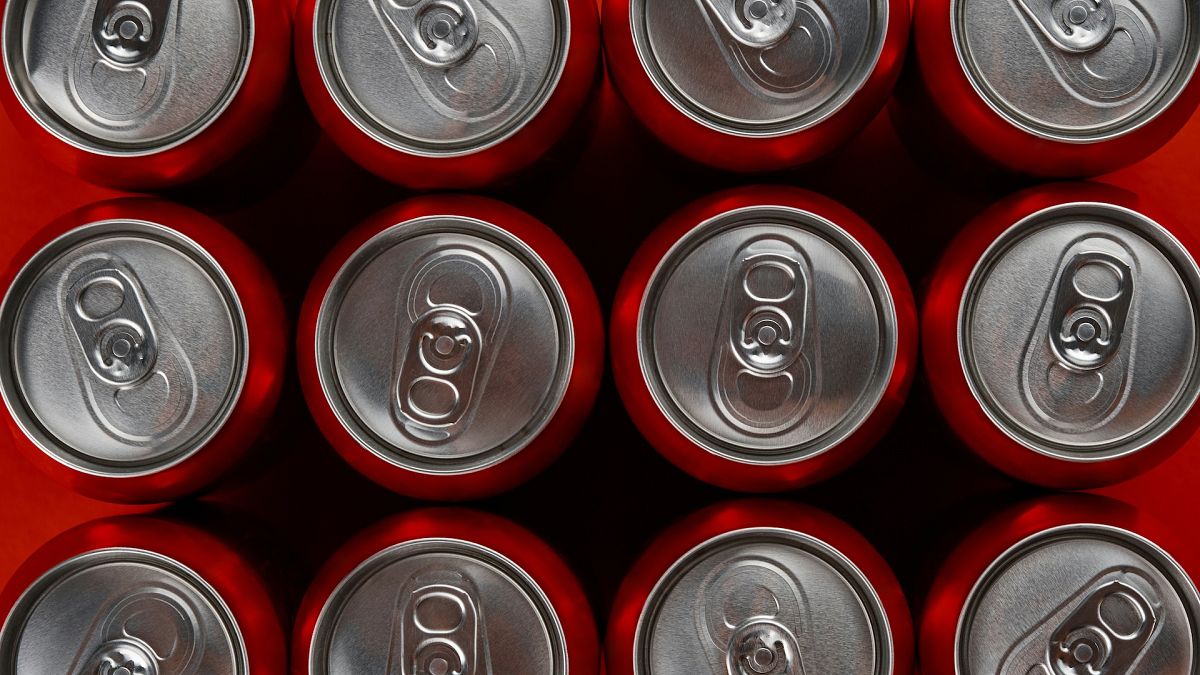Slovakia’s parliament passes new law to increase the price of sugary drinks and tobacco products in order to help cut the country’s budget deficit.
Slovakian consumers face having to pay more for their tobacco fix and sugary drinks following parliament’s approval of new laws to increase the tax on the products. The new law will come into effect from January next year.
The taxing of sweetened non-alcoholic beverages is expected to raise an extra €85m in 2025, and €117m in 2026. Finance ministry analysts forecast the tax on e-cigarettes, and other nicotine and tobacco products, will generate €15m in 2025, rising to €126m in 2026.
The introduction of the taxes is one of a raft of measures the government is deploying to reduce the budget deficit, one of the highest in the European Union.
International credit rating agency Fitch expects the Slovak budget deficit to reach 5.7% of GDP this year, up from 4.9% in 2023. Forecasts are for the deficit to narrow in 2025 to 5.2%.
Cash raised from sugar tax will help narrow budget deficit
Earlier this year, Slovak Prime Minister Robert Fico and Finance Minister Ladislav Kamencky announced ambitious plans to reduce the deficit to less than 3% of GDP in 2025. They hope that measures including tax increases and spending cuts will save 1% of GDP.
Slovakian Prime Minister Robert Fico has committed to reducing his nation’s deficit saying: “We expect higher revenues for the state budget with the increase of taxes related to tobacco products.
“The second product, which has also been approved by our coalition partners, will be all beverages containing sugar and sweeteners, which will become more expensive.”
The Slovak soft drinks and mineral waters association (AVNM) reacted badly to the tax increase, criticising it for singling out soft drinks for the levy. It described the tax as “discriminatory”, arguing that the targeting of a specific category of food would do little to reduce obesity rates when other high-sugar products, such as sweets, escaped tax.
Sugar taxes – the picture across Europe
Belgium, Finland, France, Hungary, Ireland, Norway, Portugal and the United Kingdom all have some form of sugar tax. France was among the first European countries to impose the tax in 2012 as a health measure, before changing tack in 2018 to emphasise the importance of the revenue raised to the national budget.
The Danish tax focuses on specific high-sugar products in addition to sugary drinks, including chocolate, sweets, and certain baked goods. In 2022, the levy raised DKK 2,351m (€17,5m) for the Danish treasury.
In October 2011, Denmark became the first country in the world to introduce a “fat tax”, targeting the saturated fat in meat, dairy products and cooking oil. The radical experiment was a disaster and was abandoned a year after its introduction.
The United Kingdom’s Soft Drinks Industry Levy (SDIL), introduced in 2018, is one of the highest-profile sugar taxes in Europe. The UK’s levy applies specifically to sugary soft drinks, with manufacturers charged per litre, according to the sugar content of their products. The tax was designed with a tiered structure: drinks with more than 8g of sugar per 100ml are taxed at a higher rate than those with 5-8g of sugar.
Taxing sugar content can persuade manufacturers to take action
One of the most notable outcomes of the UK sugar tax has been product reformulation. Major beverage producers, such as Coca-Cola and PepsiCo, reformulated their products to lower their sugar content and avoid higher tax brackets. According to Public Health England, the sugar content in drinks subject to the tax has dropped by approximately 29% since the introduction of the SDIL.
Last month, Estonia’s government postponed plans to introduce a tax on sugary and sweetened drinks to 2026. The bill to implement a levy on sugary drinks and those that contain artificial sweeteners will now go before the Estonian parliament, the Riigikogu.
Portugal’s sugar tax, introduced in 2017, was initially aimed at sugary beverages but has since expanded to cover other sugary products like sweets and chocolates, to tackle the wide array of unhealthy foods that contribute to the country’s obesity problem.
The results have been mixed. While there has been a significant reduction in the sale of sugary drinks, the impact on overall obesity rates has been less pronounced.
Public health experts argue that, for sugar taxes to be fully effective, they must be accompanied by broader public health campaigns and initiatives to educate consumers.
Slovakia is not the only EU country struggling to reduce its deficit. According to Eurostat, the EU’s office for statistics, Italy has the highest budget deficit in the EU of 7.4%, followed by Hungary at 6.7% and Romania at 6.6%. Euro powerhouses France and Germany have deficits of 5.5% and 2.5%. Cyprus and Denmark, meanwhile, have the Union’s largest budget surplus at 3.1%.
Checkout latest world news below links :
World News || Latest News || U.S. News
The post Sour taste for sweet eaters and smokers as Slovak price hikes approved appeared first on WorldNewsEra.

